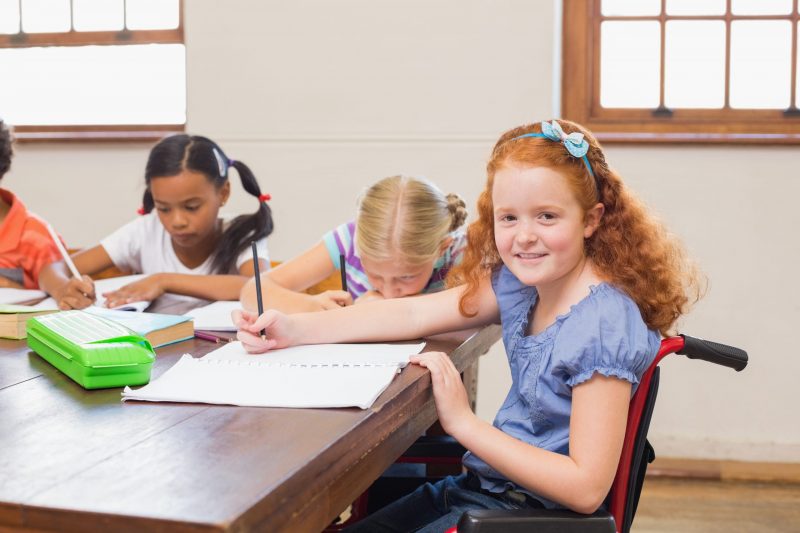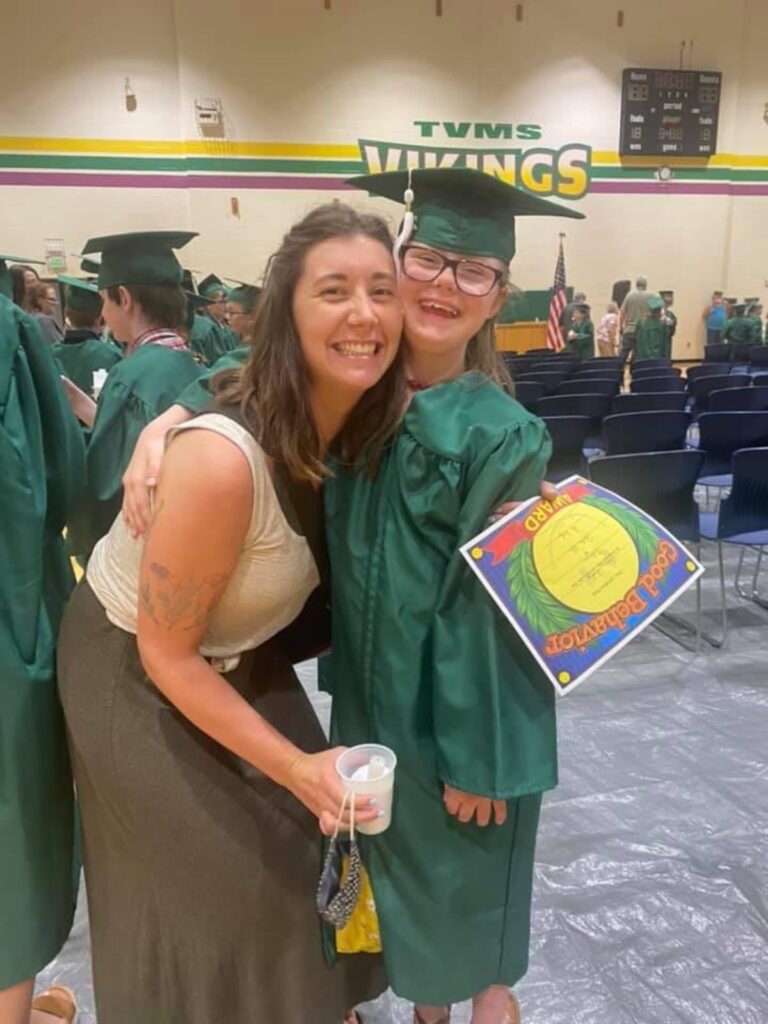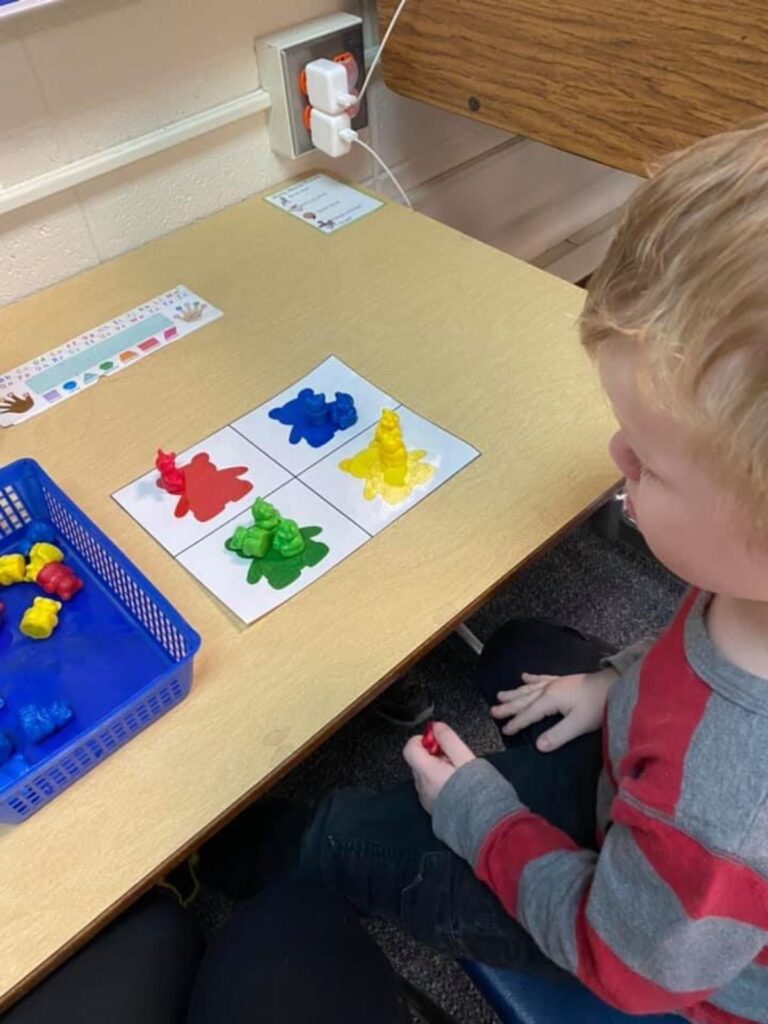2. Compassion
“Great educators must be compassionate,” says Lindsey Clink. Clink is a special education teacher at Lakeland Elementary School in Warsaw, Indiana, and absolutely loves her job.
“The students we work with are not typical,” she continues. “Some have been through hard, traumatic experiences, and others might have physical challenges or their brains just work and process a little differently. We must understand that school is harder for them. A special education teacher should have compassion by looking past a student’s struggles or behavior and looking at their heart. They might just need a break, someone to listen to them, or a few words of encouragement.”
Hiser recognizes the need for compassion in her field. Thinking through the “why” is a huge component of being an understanding and compassionate special education teacher.
“There may be more behind what is happening. Maybe a schedule changed, or something happened at home. Sometimes I need to take a step back and focus on relationships and regulation, not academics, in that moment. Understanding the way their brain works, their home life, their emotions, and their true needs is absolutely necessary for student success,” Hiser reflects.
3. Collaboration
“Excellent special education teachers are great collaborators,” says Dr. Bremer. “They understand that the students they serve are the responsibility of a team, not an individual. A great special education teacher should acknowledge the expertise that each member of the team brings to the table and they are able to facilitate collaborative problem solving while keeping the focus on the student.”
According to Kamry Williams, special education teacher and life skills coach at Mentone Elementary, collaboration is key.
“You will work with many teachers, grade levels and parents in this role,” Williams shares, “Having a good relationship with a co-teacher can make the difference in a student’s school year. You will be more effective in your planning and supporting of your shared students.”






